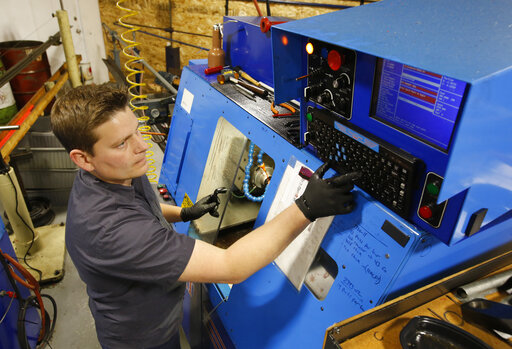NEW YORK — The wildfires that are rampant this time of year in California force small business owners to be prepared in the same way as owners in other parts of the country who deal with tornadoes and other natural disasters. It means being prepared for disruption.
Dry air and strong winds spread fires quickly, forcing some owners to evacuate and others to deal with smoke and ash. In the past year, coping with wildfires has taken on a new twist, as Pacific Gas & Electric, whose overhead lines and other equipment have been blamed for a number of fires, has turned off the power to hundreds of thousands of customers when weather conditions appear conducive to starting and spreading fires.
As a result of the unpredictable outages, many owners are thinking about installing natural gas-powered generators and solar panels so, when they’re forced off the grid, they can keep operating. Customer inquiries at NeoVolta, the maker of residential energy storage batteries, quadrupled in two weeks, CEO Brent Willson says. While many homeowners want to keep their homes powered, “20% to 30% work out of their homes every day,” Willson says.
Owners whose companies lose power or are forced to evacuate try to get the work done — those whose work is done on laptops pack up the PCs and leave. Others outsource as much work as they can. The Benjamin Franklin Plumbing franchise in Novato was forced to close because the fire known as the Kincade that started Oct. 23 burned nearby. President John Rossi had incoming phone calls rerouted to an outside call center. He moved some of his workers to his two other locations, in Concord and San Jose, so they could keep working and be paid.
This is becoming an autumn routine for the business.
“We’ve been dealing with fires the last three years,” Rossi says.
Whether owners need to evacuate or stay and work, they understand a fire affects productivity; whether they work alone or have employees, it’s an anxious time and the fire is a distraction.
Jon Stenstrom, who works out of his Los Angeles home, prepares to leave if smoke triggers his asthma.
“I give myself a day and if it isn’t going to clear and the winds are blowing, I can bring the laptop and move on,” says Stenstrom, owner of Cast & Spear, a website dedicated to fishing. After what’s called the Getty fire started Oct. 28, Stenstrom closeted himself in his house, but needed to check outside and see how bad the blowing smoke and ash were.
“My output was a lot less,” Stenstrom says. But he also knows that in an evacuation, “you’re not going to worry about work, you’re going to worry about your possessions.”
About the photo: In this Monday Nov. 11, 2019, Kyle Chittock sets up a computerized lathe at his family’s manufacturing business, Simple Country, in Grass Valley, Calif. Power outages, implemented by Pacific Gas & Electric in hopes of preventing wildfires have been unpredictable and making it hard for companies to operate. Because power could be turned off or on at any time, Chittock couldn’t know in advance whether to tell staffers to come in or start home.(AP Photo/Rich Pedroncelli)
Was this article valuable?
Here are more articles you may enjoy.


 Besieged Berkshire Utility Tries to Rewrite Who Pays for Wildfires
Besieged Berkshire Utility Tries to Rewrite Who Pays for Wildfires  Bayer to Make $10.5 Billion Push to Settle Roundup Cases
Bayer to Make $10.5 Billion Push to Settle Roundup Cases  When the Workplace Is Everywhere: The New Reality of Workers’ Comp Claims
When the Workplace Is Everywhere: The New Reality of Workers’ Comp Claims  Tesla’s Austin Robotaxis Report 14 Crashes in First Eight Months
Tesla’s Austin Robotaxis Report 14 Crashes in First Eight Months 